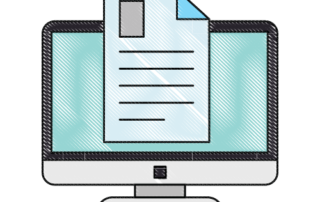Electronic Bills of Lading (eBOL) replace the tedious manual paper bill of lading process that has been standard for many years in the shipping and manufacturing industry. The traditional bill of lading which is a document issued detailing a shipment of goods is generally a piece or several pieces of paper signed by a driver then scanned and filed away. Electronic bills of lading take that document and digitize it creating a document that can be signed and stored in a one-step process on a touch screen digital device.
What is an electronic bill of lading?
An electronic bill of lading (eBOL) is a digital document that replaces a traditional paper bill of lading. The electronic format takes data or a pdf from a warehouse management system (WMS) or similar data source and converts to a signable digital document. The electronically signed document is then automatically stored in a repository creating a easily searchable database to find BOL’s and other documentation.
Why would you need an electronic bill of lading?
There are many reasons for the need of electronic documentation for your bill of lading and other shipping documents. Companies looking to streamline their operations and decrease spending on paper resources and printing costs as well as labor costs utilize these solutions. There are many additional benefits that you will see listed below.
How do I get an electronic bill of lading?
Any changes in a process especially one old as a traditional manual bill of lading can be seen as a daunting task but the transition to an electronic bill of lading is much easier than you would imagine. There are various options in the migration process and the SmartBOL solution is very customizable to the improvement of your company’s workflow. Schedule a brief call with SmartBOL to receive an overview of the process and how it would work with your company’s workflow and goals.
The benefits of using an electronic bill of lading
As listed above the benefits of moving to an electronic bill of lading can streamline backend processes and costs by decreasing the use of paper and printing resources and removing unneeded labor of searching for documents as well as scanning documents. Furthermore, the mobile and kiosk solutions for drivers create social distancing and improve the speed that your drivers get back on the road by giving them the opportunity to sign documents a single time from the comfort of their truck cab or from a centralized kiosk.

